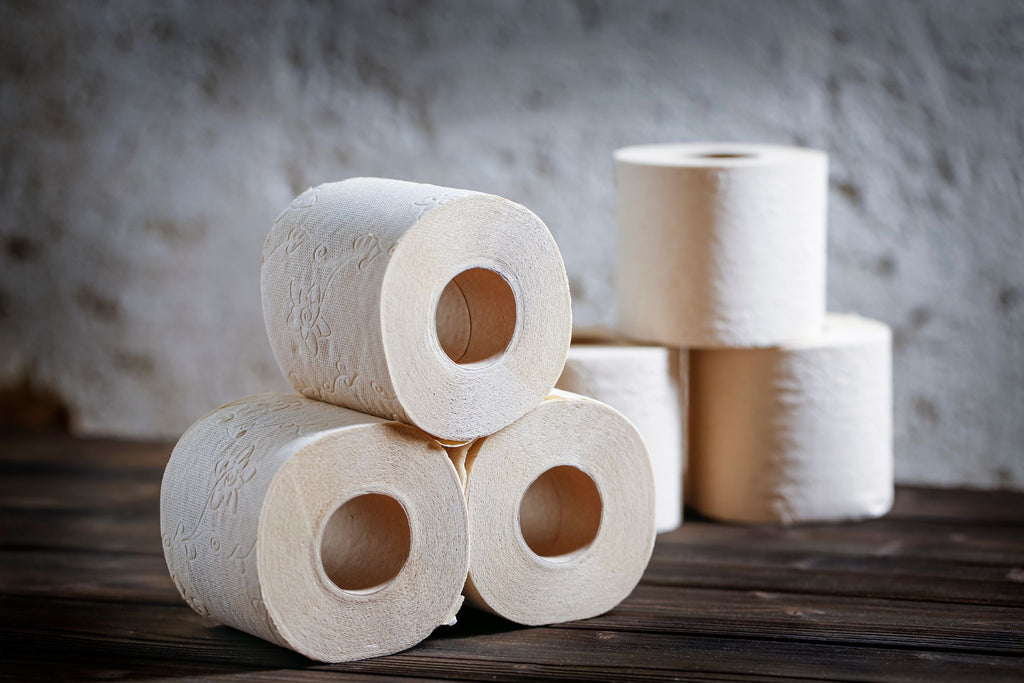
TLDR
Take a quick walk around your home. As you pass from room to room, make a note of items you use daily. From shampoo bottles to straws and toothbrushes, these seemingly small items are capable of creating significant change when they’re swapped out for an earth-minded alternative.
One particular item you won’t want to overlook? Your toilet paper.
Regular toilet paper is eligible for a green glow-up, too. Believe it or not, there are now several sustainable types of toilet papers available for you to choose from. A few popular types are recycled and bamboo toilet paper. But which is better? Ultimately, it comes down to your preference between the two paper products. In this comprehensive guide, we’ll examine the pros and cons of bamboo vs. recycled toilet paper to help decide which one better suits your needs—and the planet.
What’s The Difference Between Bamboo and Recycled Toilet Paper?
When you think about potential toilet paper materials, bamboo probably isn’t the first thing that comes to mind. And what is recycled toilet paper recycled from anyway?
It can be challenging to decide between the two when you’re still searching for the facts. Before we cover the benefits of each option, explaining the background of these tissue products might be helpful.
Bamboo Toilet Paper
As the name suggests, this toilet paper comes from bamboo instead of virgin pulp. Of course, it’s probably difficult to imagine stalks of bamboo as anything you could turn into soft, absorbent toilet paper. While it might seem like an exotic contrast to the plain white toilet tissue you’re used to, the two have a similar manufacturing process:
- Both come from plant matter that’s pulped and turned into fiber. For regular toilet paper, the broken-down material is usually wood chips.
- The pulp for both is then pressed out and dried, turning it into the toilet paper you know and love.
Even though bamboo toilet paper might sound a bit unusual, it’s practically indistinguishable from your run-of-the-mill alternative—except, of course, that bamboo is sustainable. (More on that below.)
Recycled Toilet Paper
If the process for making bamboo toilet paper is like an ordinary garden-variety day, then making recycled toilet paper is a fun night out. It doesn’t come from plant matter that needs to be processed. Instead, it comes from recycled paper products, which follows an entirely different production trajectory:
- First, the paper is shredded into scraps that the manufacturers soak and stir in warm water. This step helps remove any ink that may be leftover on the paper.
- Then the paper mash is bleached for color and sanitized for hygiene—after all, it wouldn’t matter how environmentally friendly recycled toilet paper is if it wasn’t safe to use.
- Finally, the recycled toilet tissue process syncs with the standard toilet paper manufacturing method. This toilet paper also gets pressed and dried to complete the process.
While recycled toilet paper is made differently from bamboo toilet tissue, both products offer great sustainability benefits.

The Pros of Bamboo Toilet Paper
If you can’t quite wrap your head around the idea of bamboo making a comfortable and practical toilet paper, we hear you. It’s commonly used for diy bamboo products, so it can be hard to look at the mini plant you keep on your windowsill and associate it with your favorite brand of toilet tissue.
So why use bamboo toilet paper?
This toilet paper alternative has many environmental and personal benefits that make it an excellent choice for your home. On the eco-friendly front, switching to bamboo toilet paper can make a positive impact on the environment because:
- It doesn’t come from trees – Bamboo looks like a tree, but it’s actually tall grass, making it a key player in the fight against ongoing deforestation. That means you don’t have to worry about counting every square to save as many trees as possible because you’re not using any.
- Bamboo is super sustainable – If you think the weeds in your backyard grow quickly, you’re in for a shock when you see bamboo. It’s one of the fastest-growing plants out there, sprouting at a whopping rate of three feet a day. It even grows back from the roots, which means you don’t need to replant it when you cut it down to harvest.
- Bamboo emits more oxygen than trees – It’s time for trees to move over because bamboo is the new super oxygen emitter! Studies show that bamboo gives off 35% more oxygen than trees. It also does an excellent job of soaking up CO2 emissions, removing up to 12 tons of CO2 per hectare in a year.
While you want your toilet paper to be sustainable, that’s not the only factor that matters—comfort does too. Fortunately, bamboo toilet paper also offers the following personal benefits:
- It’s super strong – There’s nothing flimsy about this grass. Despite what you may think about bamboo, it’s durable and has more tensile endurance than steel. That means you don’t need to worry about your toilet paper not holding up.
- It’s safe for your septic system – Just because bamboo toilet paper is strong and mighty doesn’t mean it’ll overpower your septic system. In fact, it’s completely biodegradable, making it the best toilet paper for plumbing systems. So, if you’re worried about it causing problems for your septic system, don’t—it fully dissolves in water.
- It’s more natural – Since the manufacturing process for recycled toilet paper involves sanitizing, that means it’s chemically treated. On the other hand, bamboo toilet paper undergoes a much more natural manufacturing process with less potential for harsh chemicals.
The main takeaways? Bamboo toilet paper is a fantastic choice for both you and the environment. And, its versatility is another benefit as we learn about different uses of bamboo.
While bamboo toilet paper is one eco-friendly candidate to consider, it’s not the only option on the market. You can also make a significant environmental impact by switching to recycled paper towels and toilet tissue instead.

The Pros of Recycled Toilet Paper
This kind of toilet tissue usually comes from consumer waste which means you can sleep easy knowing that all the morning newspapers you recycled are being put to good use.
But when compared to the pros and cons of bamboo toilet paper, how does recycled toilet tissue stack up environmentally?
Pretty well, as it turns out. Recycled toilet paper also has lots of eco-friendly pluses, such as:
- Reduced deforestation – While recycled tissue paper still comes from paper (unlike bamboo toilet tissue), it lessens the demand for freshly cut trees since it’s made from existing paper.
- Less waste – Since “recycled” is in its name, this might seem like an obvious point to make. That said, its waste reduction benefits go beyond the repurposed paper used to make it. It even reduces water waste. Regular toilet paper uses roughly two times the water compared to the amount recycled toilet tissue does in production.
You might also be wondering about your comfort when considering recycled toilet paper. Maybe you’ve heard rumors that it’s scratchy and uncomfortable, or you’re worried it will be too thin. If so, you can rest assured knowing that recycled toilet paper also has its fair share of personal perks:
- You’ll have an easier time finding it in stores – More and more people have been learning and investing in sustainability. Increased awareness is a win for the planet—and its increasing popularity ensures that eco-friendly paper products are more accessible for consumers. In comparison, you would’ve had difficulty finding recycled toilet paper anywhere but online a few years ago. However, more eco-conscious brands are offering it in stores now.
- It’s a good option for low-flow toilets – Not everyone has access to super-strong plumbing. If you live in an RV, spend a lot of time on boats, or have weak pipes in your home, recycled toilet paper can be a godsend. Its weaker fiber means it dissolves easier in water and won’t flood your toilet like conventional toilet paper does on occasion.
Since bamboo and recycled tissue paper offer several environmental perks, both sides win in this debate. You can feel confident that you’re making a positive environmental impact no matter which you pick. It all comes down to your preferences in eco-friendly toilet paper.
Make a Difference One Roll at a Time with Reel Paper
Although any kinder choice to the planet is the ultimate winner, we can’t help but lean slightly to one side in the bamboo vs. recycled toilet paper debate. Our pick? Reel Paper premium bamboo toilet paper.
Because of its natural manufacturing process, bamboo toilet paper helps you feel good knowing that something you use every day has a minimal impact on the environment. It’s also completely tree-free, meaning you don’t have to worry about putting your favorite forests and tree-lined hiking trails at risk.
Plus, Reel Paper makes it easy for you to get your hands on this sustainable swap. We know that running to the store to stock up on toilet rolls can be a disruption to your daily routine. That’s why we offer discreet, hassle-free delivery right to your door when you subscribe. We even offer bulk toilet paper so that you can enjoy savings while helping the planet. Want to go all-in on bamboo? We've got you covered with our bamboo paper towels, too.
Order your first box of Reel Paper today to start making a small lifestyle change in favor of a healthier planet.
Sources:
Treehugger. Eco-Friendly Toilet Paper: Bamboo vs. Recycled. https://www.treehugger.com/eco-friendly-toilet-paper-bamboo-vs-recycled-5114452
Eco & Beyond. Truth or Trend: Is Bamboo Sustainable? https://www.ecoandbeyond.co/articles/is-bamboo-sustainable/
Ethical Consumer. Toilet Paper. https://www.ethicalconsumer.org/home-garden/shopping-guide/toilet-paper
SMD Magazine. 7 Reasons Why You Should Make the Switch to Recycled Toilet Paper. https://sustainabilitymattersdaily.com/7-reasons-why-you-should-make-the-switch-to-recycled-toilet-paper/
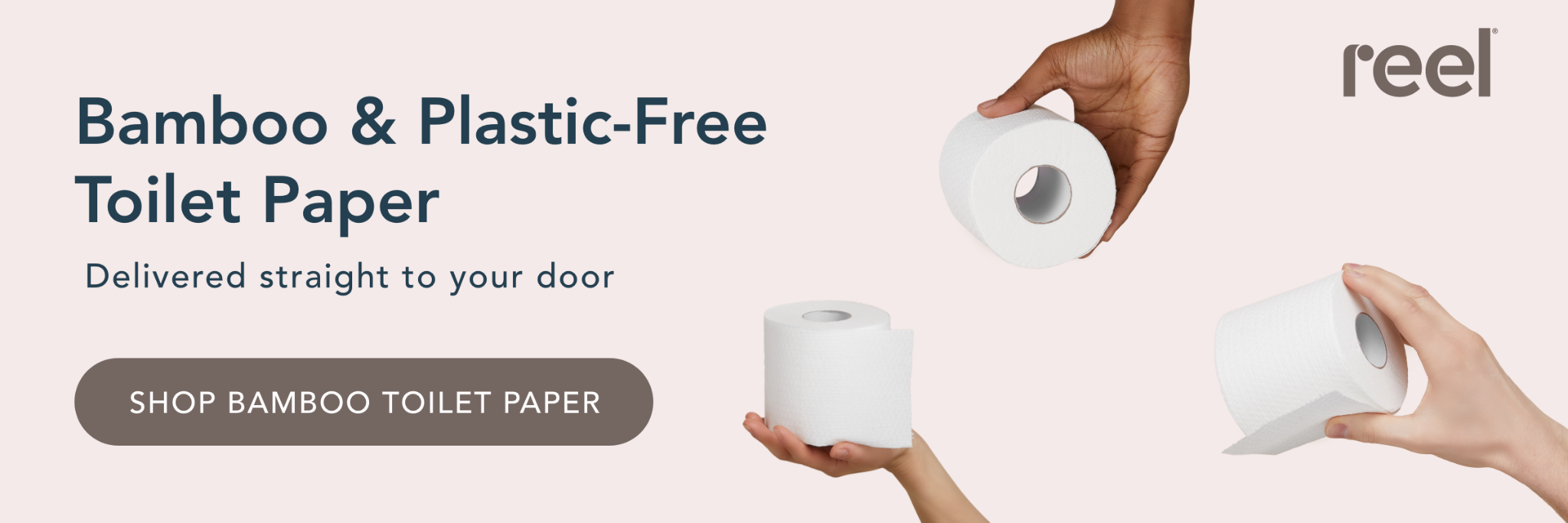
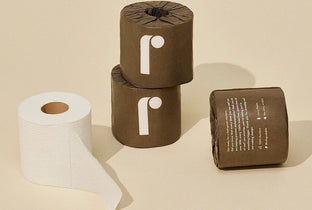
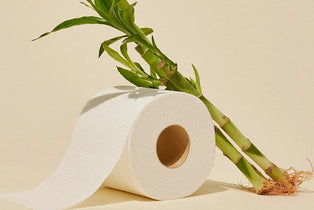
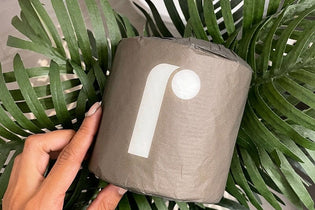
0 comments